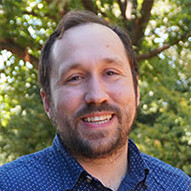Research: Pediatric Behavioral Health
Research: Pediatric Behavioral Health
Research: Pediatric Behavioral Health
Around 600,000 children in Texas have behavioral and mental health care needs. Children’s Health℠ is home to one of the nation’s most comprehensive Behavioral Health programs specializing in diagnosing and treating psychological and psychiatric conditions. Our compassionate experts help children and teens with diverse concerns, including anxiety, stress, depression, suicidal thoughts, eating disorders and more. Our services include psychological assessments, psychiatric consultations and clinical therapy to support children impacted by emotional, mental, behavioral or social-functioning issues.
We are committed to helping every patient receive the mental health support they need to feel better, so they thrive.
Highlights

Telehealth revolutionizes neurobehavioral reach for underserved children in need
Millions of children live in "neuropsychology deserts" with limited access to expert evaluations. Discover how telehealth is transforming pediatric neuropsychology, breaking down barriers of distance and enabling effective treatment. In this compelling Q&A, Lana Harder, Ph.D., Pediatric Neuropsychologist at Children’s Health, shares how virtual assessments are proving just as effective as in-person visits.

Why ADHD gets overlooked and how providers can meet the need for treatment
Why ADHD gets overlooked and how providers can meet the need for treatment Research shows that attention-enhancing medications combined with behavioral strategies is the most effective approach to ADHD. Learn more about the practical skills that can make a big difference for kids and their families.

Supporting neurodevelopment of pediatric heart patients: 4 new initiatives
New cardiac neurodevelopmental initiatives at Children’s Health identify neurodevelopmental concerns in children with heart conditions early. See how our team ensures pediatric heart patients enjoy success in school and life.
Our Programs
- Pediatric Depression Clinic
- Pediatric Health Psychology
- Teen Recovery Program
- Childhood Eating Disorders Treatment
- Pediatric Avoidant/Restrictive Food Intake Disorder (ARFID) Treatment Program
- Suicide Prevention and Resilience at Children’s (SPARC)
- Expert Care for Children With Conditions That Affect Brain Function
- Cardiac Neurodevelopmental Program
- Pediatric Psychiatry Consult Services
- Pediatric Day Treatment Program
- UT Southwestern and Children's Health℠ Center for Autism Care
- Applied Behavior Analysis (ABA) Program for Autism
- Pediatric Integrated Behavioral Health Program
Psychiatry Research Overview
Behavioral Health experts at Children’s Health partner with UT Southwestern on clinical research, recruitment and trials. Learn about our latest innovations in care and cutting-edge studies:
Texas Childhood Trauma Research Network (TX-CTRN) (pdf) We are one of 12 TX-CTRN sites across Texas. Participants are recruited from areas such as the trauma unit, outpatient psychiatry, consult services, dialysis, hematology and oncology. Children and their legal guardians complete six assessments across two years, where we evaluate their trauma history, mood symptoms, treatment history, suicidality and other social aspects affecting their health. Principal Investigator: Sunita Stewart, Ph.D.
Texas Youth Depression and Suicide Research Network (TX- YDSRN)![]() TX-YDSRN is a multi-site study led by its hub site at UTSW. Eligible patients within outpatient psychiatry, intensive outpatient therapy and partial hospitalization programs are recruited for this study. Initially designed to be a two-year study, TX-YDSRN will continue to collect data from youth for up to 10 years. We conduct in-depth assessments of mood symptoms, suicidal ideation and behavior, associated comorbidities, treatment history, services use and social determinants of health. Principal Investigators: Beth Kennard, Psy.D., and Graham J. Emslie, M.D.
TX-YDSRN is a multi-site study led by its hub site at UTSW. Eligible patients within outpatient psychiatry, intensive outpatient therapy and partial hospitalization programs are recruited for this study. Initially designed to be a two-year study, TX-YDSRN will continue to collect data from youth for up to 10 years. We conduct in-depth assessments of mood symptoms, suicidal ideation and behavior, associated comorbidities, treatment history, services use and social determinants of health. Principal Investigators: Beth Kennard, Psy.D., and Graham J. Emslie, M.D.
A Multi-Site Study to Compare the Outcomes of Psychiatric Treatment of Suicidal Adolescents in Different Treatment Setting (START II)![]() UTSW is one of four START II sites across the nation. Suicidal youth who could be appropriate for multiple treatment settings are assessed and discharged to either an outpatient crisis intervention clinic (Suicide Prevention and Resilience at Childrens) or inpatient care. Participants and their legal guardians remotely complete surveys for six months following their mental health crisis to compare risk of suicidal events, treatment satisfaction, and life satisfaction between treatment settings. Principal Investigators: Beth Kennard, Psy.D., and Graham J. Emslie, M.D.
UTSW is one of four START II sites across the nation. Suicidal youth who could be appropriate for multiple treatment settings are assessed and discharged to either an outpatient crisis intervention clinic (Suicide Prevention and Resilience at Childrens) or inpatient care. Participants and their legal guardians remotely complete surveys for six months following their mental health crisis to compare risk of suicidal events, treatment satisfaction, and life satisfaction between treatment settings. Principal Investigators: Beth Kennard, Psy.D., and Graham J. Emslie, M.D.
Characterizing Inflammatory Profiles in Suicidal Behaviors in Adolescents![]() The American Foundation for Suicide Prevention has awarded a three-year grant to develop immune profiles for adolescents with suicidal behavior and those at risk. This study recruits adolescents with suicidal behaviors who may be at risk for MDD or bipolar disorder from Children’s Health Dallas, Children’s Health Plano and from the community. Participants complete various evaluations and self-report measures to assess demographics, clinical characteristics, mood symptoms, and biological samples with the goal of developing immune profiles for adolescents with suicidal behavior and those at risk. Principal Investigators: Madhukar Trivedi, M.D. and Graham J. Emslie, M.D.
The American Foundation for Suicide Prevention has awarded a three-year grant to develop immune profiles for adolescents with suicidal behavior and those at risk. This study recruits adolescents with suicidal behaviors who may be at risk for MDD or bipolar disorder from Children’s Health Dallas, Children’s Health Plano and from the community. Participants complete various evaluations and self-report measures to assess demographics, clinical characteristics, mood symptoms, and biological samples with the goal of developing immune profiles for adolescents with suicidal behavior and those at risk. Principal Investigators: Madhukar Trivedi, M.D. and Graham J. Emslie, M.D.
Double-Blind Randomized Controlled Trial of Acute-Course of Ketamine Versus Midazolam for Recurrence of Suicidality in Adolescents (TASK) This study is funded by a National Institutes of Health (NIH) grant awarded to the Center for Depression Research and Clinical care. Adolescents who have had a recent suicidal event may be recruited from various departments at Children’s or from the community to participate in the TASK study. Participants will either receive four Ketamine or Midazolam infusions throughout a two-week period and complete assessments about their depression symptoms and suicidal events over the entire 12-week study period. Principal Investigators: Madhukar Trivedi, M.D., Graham J. Emslie, M.D., and Beth Kennard, Psy.D.
Psychiatry Research Overview
Behavioral Health experts at Children’s Health partner with UT Southwestern on clinical research, recruitment and trials. Learn about our latest innovations in care and cutting-edge studies:
Texas Childhood Trauma Research Network (TX-CTRN) (pdf) We are one of 12 TX-CTRN sites across Texas. Participants are recruited from areas such as the trauma unit, outpatient psychiatry, consult services, dialysis, hematology and oncology. Children and their legal guardians complete six assessments across two years, where we evaluate their trauma history, mood symptoms, treatment history, suicidality and other social aspects affecting their health. Principal Investigator: Sunita Stewart, Ph.D.
Texas Youth Depression and Suicide Research Network (TX- YDSRN)![]() TX-YDSRN is a multi-site study led by its hub site at UTSW. Eligible patients within outpatient psychiatry, intensive outpatient therapy and partial hospitalization programs are recruited for this study. Initially designed to be a two-year study, TX-YDSRN will continue to collect data from youth for up to 10 years. We conduct in-depth assessments of mood symptoms, suicidal ideation and behavior, associated comorbidities, treatment history, services use and social determinants of health. Principal Investigators: Beth Kennard, Psy.D., and Graham J. Emslie, M.D.
TX-YDSRN is a multi-site study led by its hub site at UTSW. Eligible patients within outpatient psychiatry, intensive outpatient therapy and partial hospitalization programs are recruited for this study. Initially designed to be a two-year study, TX-YDSRN will continue to collect data from youth for up to 10 years. We conduct in-depth assessments of mood symptoms, suicidal ideation and behavior, associated comorbidities, treatment history, services use and social determinants of health. Principal Investigators: Beth Kennard, Psy.D., and Graham J. Emslie, M.D.
A Multi-Site Study to Compare the Outcomes of Psychiatric Treatment of Suicidal Adolescents in Different Treatment Setting (START II)![]() UTSW is one of four START II sites across the nation. Suicidal youth who could be appropriate for multiple treatment settings are assessed and discharged to either an outpatient crisis intervention clinic (Suicide Prevention and Resilience at Childrens) or inpatient care. Participants and their legal guardians remotely complete surveys for six months following their mental health crisis to compare risk of suicidal events, treatment satisfaction, and life satisfaction between treatment settings. Principal Investigators: Beth Kennard, Psy.D., and Graham J. Emslie, M.D.
UTSW is one of four START II sites across the nation. Suicidal youth who could be appropriate for multiple treatment settings are assessed and discharged to either an outpatient crisis intervention clinic (Suicide Prevention and Resilience at Childrens) or inpatient care. Participants and their legal guardians remotely complete surveys for six months following their mental health crisis to compare risk of suicidal events, treatment satisfaction, and life satisfaction between treatment settings. Principal Investigators: Beth Kennard, Psy.D., and Graham J. Emslie, M.D.
Characterizing Inflammatory Profiles in Suicidal Behaviors in Adolescents![]() The American Foundation for Suicide Prevention has awarded a three-year grant to develop immune profiles for adolescents with suicidal behavior and those at risk. This study recruits adolescents with suicidal behaviors who may be at risk for MDD or bipolar disorder from Children’s Health Dallas, Children’s Health Plano and from the community. Participants complete various evaluations and self-report measures to assess demographics, clinical characteristics, mood symptoms, and biological samples with the goal of developing immune profiles for adolescents with suicidal behavior and those at risk. Principal Investigators: Madhukar Trivedi, M.D. and Graham J. Emslie, M.D.
The American Foundation for Suicide Prevention has awarded a three-year grant to develop immune profiles for adolescents with suicidal behavior and those at risk. This study recruits adolescents with suicidal behaviors who may be at risk for MDD or bipolar disorder from Children’s Health Dallas, Children’s Health Plano and from the community. Participants complete various evaluations and self-report measures to assess demographics, clinical characteristics, mood symptoms, and biological samples with the goal of developing immune profiles for adolescents with suicidal behavior and those at risk. Principal Investigators: Madhukar Trivedi, M.D. and Graham J. Emslie, M.D.
Double-Blind Randomized Controlled Trial of Acute-Course of Ketamine Versus Midazolam for Recurrence of Suicidality in Adolescents (TASK) This study is funded by a National Institutes of Health (NIH) grant awarded to the Center for Depression Research and Clinical care. Adolescents who have had a recent suicidal event may be recruited from various departments at Children’s or from the community to participate in the TASK study. Participants will either receive four Ketamine or Midazolam infusions throughout a two-week period and complete assessments about their depression symptoms and suicidal events over the entire 12-week study period. Principal Investigators: Madhukar Trivedi, M.D., Graham J. Emslie, M.D., and Beth Kennard, Psy.D.
Meet the Care Team
 Urszula Kelley, MDPediatric Psychiatrist
Urszula Kelley, MDPediatric Psychiatrist David Atkinson, MDPediatric Psychiatrist
David Atkinson, MDPediatric Psychiatrist Emine Ayvaci, MDPediatric Psychiatrist
Emine Ayvaci, MDPediatric Psychiatrist Sabrina Browne, MDPediatric Psychiatrist
Sabrina Browne, MDPediatric Psychiatrist Kaylee Davis-Bordovsky, MDPediatric Psychiatrist
Kaylee Davis-Bordovsky, MDPediatric Psychiatrist Andrew Diederich, MDPediatric Psychiatrist
Andrew Diederich, MDPediatric Psychiatrist Stephen Elliott, MDPediatric Psychiatrist
Stephen Elliott, MDPediatric Psychiatrist Joseph Guillory, MDPediatric Psychiatrist
Joseph Guillory, MDPediatric Psychiatrist Medha Iyer, MDPediatric Psychiatrist
Medha Iyer, MDPediatric Psychiatrist Catherine Karni, MDPediatric Psychiatrist
Catherine Karni, MDPediatric Psychiatrist Katherine Kerr, MDPediatric Psychiatrist
Katherine Kerr, MDPediatric Psychiatrist Mili Khandheria, MDPediatric Psychiatrist
Mili Khandheria, MDPediatric Psychiatrist Jane Miles, MDPediatric Psychiatrist
Jane Miles, MDPediatric Psychiatrist James Norcross, MDPediatric Psychiatrist
James Norcross, MDPediatric Psychiatrist Charles Odom, MDPediatric Psychiatrist
Charles Odom, MDPediatric Psychiatrist Michael Preston, MDPediatric Psychiatrist
Michael Preston, MDPediatric Psychiatrist Laura Stone, MDPediatric Psychiatrist
Laura Stone, MDPediatric Psychiatrist J Trello-Rishel, MDPediatric Psychiatrist
J Trello-Rishel, MDPediatric Psychiatrist Caroline Walker, MDPediatric Psychiatrist
Caroline Walker, MDPediatric Psychiatrist M Elizabeth Weidmer-Mikhail, MDPediatric Psychiatrist
M Elizabeth Weidmer-Mikhail, MDPediatric Psychiatrist- RARanya Alnatour, PsyDPediatric Psychologist - Cancer and Blood Disorders
 Adrienne Anderson, PhDPediatric Psychologist
Adrienne Anderson, PhDPediatric Psychologist W. David Brown, PhDPediatric Psychologist - Sleep Medicine
W. David Brown, PhDPediatric Psychologist - Sleep Medicine Julie Germann, PhD, ABPPPediatric Psychologist
Julie Germann, PhD, ABPPPediatric Psychologist Lana Harder, PhD, ABPPPediatric Neuropsychologist
Lana Harder, PhD, ABPPPediatric Neuropsychologist Suzanne Holm, PhDPediatric Psychologist
Suzanne Holm, PhDPediatric Psychologist Laura Kuper, PhD, ABPPPediatric Psychologist
Laura Kuper, PhD, ABPPPediatric Psychologist Katherine Mount, PhDPediatric Psychologist
Katherine Mount, PhDPediatric Psychologist Jenna Oppenheim, PsyD, ABPPPediatric Psychologist
Jenna Oppenheim, PsyD, ABPPPediatric Psychologist Stevie Puckett-Perez, PhD, ABPPPediatric Psychologist - Gastroenterology (GI)
Stevie Puckett-Perez, PhD, ABPPPediatric Psychologist - Gastroenterology (GI)- ESEileen Santa-Sosa, PhD, ABPPPediatric Psychologist - NICU/Thrive
 Marsha Siebenmorgen, PhD, ABPPPediatric Neuropsychologist
Marsha Siebenmorgen, PhD, ABPPPediatric Neuropsychologist Megan Tierney, PsyD, ABPPPediatric Psychologist
Megan Tierney, PsyD, ABPPPediatric Psychologist Hillary Kimbley, PhDPediatric Psychologist - Neurology
Hillary Kimbley, PhDPediatric Psychologist - Neurology Corinne Anton, PhD, ABPPPediatric Psychologist - Cardiology
Corinne Anton, PhD, ABPPPediatric Psychologist - Cardiology Laura Austin, PhDPediatric Psychologist
Laura Austin, PhDPediatric Psychologist Randi Cheatham-Johnson, PhDPediatric Psychologist - Cardiology
Randi Cheatham-Johnson, PhDPediatric Psychologist - Cardiology Andrew McGarrahan, PhDPediatric Psychologist
Andrew McGarrahan, PhDPediatric Psychologist Kelli Triplett, PhDPediatric Psychologist - Transplant
Kelli Triplett, PhDPediatric Psychologist - Transplant Jamie Becker, PhD, ABPPPediatric Psychologist
Jamie Becker, PhD, ABPPPediatric Psychologist Angela Canas, PhDPediatric Neuropsychologist
Angela Canas, PhDPediatric Neuropsychologist Alexis Clyde, PhD, ABPPPediatric Psychologist
Alexis Clyde, PhD, ABPPPediatric Psychologist Jordan Constance, PhD, ABPPPediatric NeuroPsychologist
Jordan Constance, PhD, ABPPPediatric NeuroPsychologist Candace Genest, PhDPediatric Neuropsychologist
Candace Genest, PhDPediatric Neuropsychologist Jessica Heerschap, PhDPediatric Psychologist
Jessica Heerschap, PhDPediatric Psychologist Celia Heppner, PsyD, ABPPPediatric Psychologist - Plastic Surgery
Celia Heppner, PsyD, ABPPPediatric Psychologist - Plastic Surgery Betsy Kennard, PsyD, ABPPPediatric Psychologist
Betsy Kennard, PsyD, ABPPPediatric Psychologist- EKErin Kennedy, PsyDPediatric Neuropsychologist
 Katherine Magnuson, PsyDPediatric Psychologist
Katherine Magnuson, PsyDPediatric Psychologist Joy Neumann, PsyDPediatric Neuropsychologist
Joy Neumann, PsyDPediatric Neuropsychologist- EPErica Pollock, PhDPediatric Neuropsychologist
 Eman Rettig, PsyDPediatric Neuropsychologist
Eman Rettig, PsyDPediatric Neuropsychologist Lisa Schuster, PhDPediatric Psychologist - REACH
Lisa Schuster, PhDPediatric Psychologist - REACH Clinton Smith, PsyDPediatric Psychologist - Foster Care
Clinton Smith, PsyDPediatric Psychologist - Foster Care Sunita Stewart, PhD, ABPPPediatric Psychologist
Sunita Stewart, PhD, ABPPPediatric Psychologist Andrea Wahlberg, PhDPediatric Neuropsychologist
Andrea Wahlberg, PhDPediatric Neuropsychologist Nicholas Westers, PsyD, ABPPPediatric Psychologist
Nicholas Westers, PsyD, ABPPPediatric Psychologist Alicia Wheelington, PhDPediatric Psychologist
Alicia Wheelington, PhDPediatric Psychologist Alison Wilkinson-Smith, PhD, ABPPPediatric Neuropsychologist
Alison Wilkinson-Smith, PhD, ABPPPediatric Neuropsychologist Kristin Wolfe, PhDPediatric Psychologist
Kristin Wolfe, PhDPediatric Psychologist
